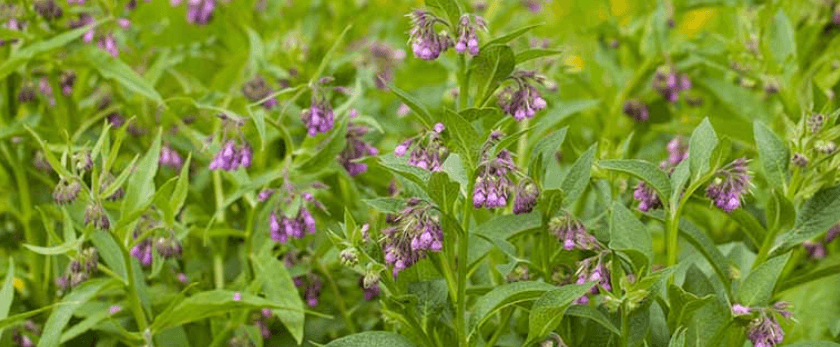Comfrey is a versatile and hardy plant that has been used for centuries for its medicinal and gardening properties. It is a perennial herb that is easy to grow and can thrive in a variety of conditions. In this article, we will discuss how to care for comfrey, the best time to grow it, and common problems that may arise.
How to Care for Comfrey
Watering
Comfrey is a drought-resistant plant and does not require frequent watering. However, it is important to keep the soil consistently moist, especially during the first few weeks after planting. Once established, comfrey can survive on rainfall alone. If you live in an area with long periods of drought, it is recommended to water the plant once a week.
Light
Comfrey can grow in full sun or partial shade, but it prefers a sunny location. If you are growing comfrey indoors, make sure to place it near a window that receives plenty of sunlight. If you are growing it outdoors, choose a spot that gets at least 6 hours of sunlight per day.
Soil
Comfrey can grow in a variety of soil types, but it thrives in rich, well-draining soil. It is important to avoid waterlogged soil, as it can cause root rot. If your soil is heavy and clay-like, add some organic matter such as compost or aged manure to improve drainage.
Fertilizer
Comfrey is a heavy feeder and benefits from regular fertilization. You can use a balanced organic fertilizer once a month during the growing season. Alternatively, you can use a liquid seaweed fertilizer every two weeks. Avoid using chemical fertilizers, as they can harm the plant and the environment.
Pruning
Comfrey is a fast-growing plant and can reach up to 5 feet in height. To keep it in check, it is important to prune it regularly. Pruning also encourages new growth and helps the plant to produce more leaves. You can prune comfrey down to the ground in the fall, and it will regrow in the spring.
What is the Best Time to Grow Comfrey?
Comfrey can be grown year-round in mild climates, but it is best to plant it in the spring or fall. If you live in a colder climate, it is recommended to plant comfrey in the spring, as it needs time to establish itself before the winter. In warmer climates, you can plant comfrey in the fall, and it will continue to grow throughout the winter.

Common Problems with Comfrey
Pests
Comfrey is generally pest-resistant, but it can occasionally be affected by aphids, slugs, and snails. To prevent these pests, keep the area around the plant clean and free of debris. You can also use natural pest control methods such as introducing beneficial insects or using organic pest control sprays.
Diseases
Comfrey is also resistant to most diseases, but it can be susceptible to root rot if the soil is too wet. To prevent this, make sure to plant comfrey in well-draining soil and avoid overwatering. If you notice any signs of root rot, such as wilting or yellowing leaves, remove the affected parts of the plant and improve drainage.
Invasive Growth
Comfrey has a deep root system and can spread quickly, making it difficult to control. To prevent comfrey from becoming invasive, it is recommended to plant it in a container or a raised bed. If you are growing it in the ground, make sure to regularly prune the plant to keep it in check.
Responsible Disposal of Comfrey
Comfrey is a valuable plant, but it can also be harmful if not disposed of properly. The plant contains pyrrolizidine alkaloids, which can be toxic to humans and animals if ingested in large quantities. Therefore, it is important to dispose of comfrey responsibly.
If you are using comfrey for medicinal purposes, make sure to follow the recommended dosage and consult with a healthcare professional before use. When disposing of comfrey, do not compost it or throw it in the trash. Instead, you can burn it or bury it deep in the ground away from any water sources.
Conclusion
Comfrey is a versatile and beneficial plant that can be grown by anyone, from experienced gardeners to beginners. By following the care tips mentioned in this article, you can successfully grow comfrey and enjoy its many benefits. Remember to be responsible when disposing of comfrey and always consult with a professional before using it for medicinal purposes. With proper care, comfrey can be a valuable addition to your garden and a sustainable choice for a greener future.










